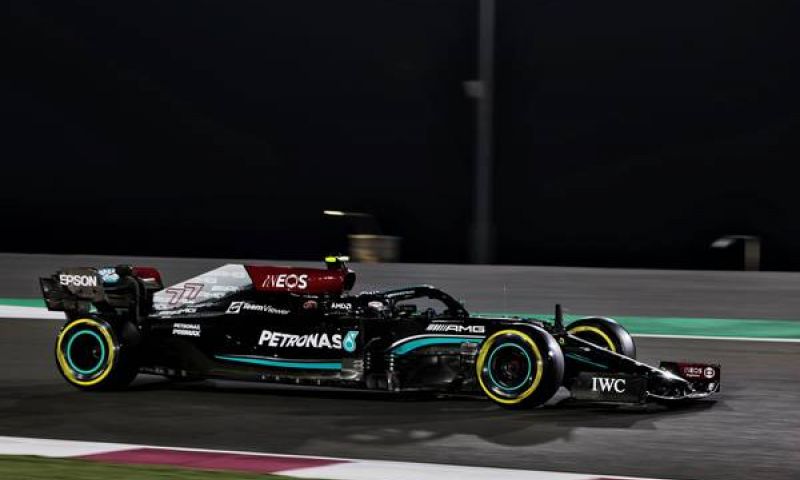Column

Will Mercedes gamble to get another fresh ICE for the last two races?
For the first time in the turbo-hybrid era, Mercedes have been under sustained pressure throughout the Formula 1 season. Red Bull Racing have pushed the needle on the barometer to new levels of Pascals over the last few months and they can still walk away with both World Championship titles in Abu Dhabi later this month. Max Verstappen still leads the drivers' standings and can wrap the Championship up in Saudi Arabia.
After Verstappen’s win in the Mexican Grand Prix, it seemed as if Lewis Hamilton needed to land a couple of snookers to keep his hopes alive. Mercedes may well have found the snookers required by installing a brand new internal combustion engine for the Brazilian Grand Prix, and other spicy equipment as labelled by boss Toto Wolff.
Valtteri Bottas took a myriad of new engines after the summer break, with the Finn being relegated down the grid with penalties in the Italian, Turkish and Russian Grands Prix. Questions arose regarding the reliability of the Mercedes engine. This might be true to some extent, but it seems as if the Mercedes crew were working out how hard they could push the ICE ready to be installed in Hamilton’s car.
Because repetitive ICE penalties result in a 50% mitigation (ten-place penalty down to five-place penalty), it might seem like an absolute no brainer to do it again in at least one of the races in Saudi Arabia or Abu Dhabi. Hamilton’s overtaking rate in the Brazilian Grand Prix also supports that point. The Brit worked his way through the field in both the sprint race and the main event, only really getting stuck behind his title rival Verstappen for a relatively long period of time. Surely we’ll see more engine penalties then?
It’s a no brainer?
The Saudi Arabian Grand Prix is an unknown. The street circuit in Jeddah, a city located on the coastline to the Red Sea, has only just been completed in time for the event. Aside from the safety car, any lap from a racing car will not be completed until Friday afternoon.
However, simulations and the track map tell us that it’s a high-speed Monaco. There’s very little room for comfort and overtaking is going to be a serious challenge whether you have a superior car or not. Similar to Monaco, pole position is going to be extremely valuable. Not only in terms of track position for the race, but track position to avoid the carnage in the mid-field. It’s a tight run down to turn one, and there’s not much elbow room.
With a Hamilton DNF handing the World Championship title to Verstappen, there is surely no way Mercedes will want to risk putting their driver in this vulnerable position. A no brainer to avoid any grid penalty.
Hamilton’s Brazilian Grand Prix engine didn’t get used in Qatar. The Italian branch of Motorsport.com reported that Hywel Thomas, Mercedes' chief engineer, prepared an engine for Hamilton that has a lifespan of only 2,500 kilometres. This should be four, possibly five Grand Prix weekends. With it only running three races, the engine should comfortably complete the required mileage as long as Mercedes' calculations are correct.
The layout changes to the Yas Marina Circuit for the Abu Dhabi Grand Prix have been introduced with the hope that overtaking will be improved. Of course, teams have simulations to check on this but is it a risk worth taking? In a World Championship battle, Hamilton has experience of being stuck in Abu Dhabi traffic.
What about Red Bull?
Ever since Honda installed their fourth engine to Max Verstappen’s car, Christian Horner has often expressed his confidence in reaching the end of the season without taking a new engine. The only clause in that line came if there was another unexpected crash or problem.
The Japanese engine degrades extremely slowly and therefore any gains by introducing a new internal combustion engine are limited. The Honda engine is not expected to have a major performance or horsepower gain when installing a new one. This, therefore, makes an engine penalty in Saudi Arabia even less likely for Red Bull. It just wouldn’t be worth the risk.
Earlier in the week, there were suggestions that Honda would bring a new engine for the Abu Dhabi Grand Prix. But again, that’s extremely unlikely to happen because track position is so important around the Yas Marina circuit. In terms of engines and power units, we expect status quo.